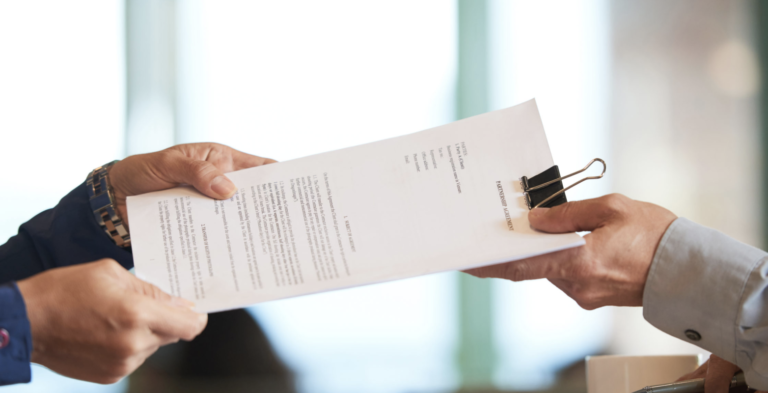Sponsor licenCe Scale-up

On August 22, 2022, another route was opened, through which foreigners can work in the UK through job offers at Scale-ups.
Unlike the Skilled Worker route, the Scale-up route offers both a ‘sponsored application’ route and an ‘unsponsored application’ route. In their first entry in this category, applicants must show that an employer sponsors them with a scaling sponsor licence.
Next, we look at what requirements employers must meet to obtain a sponsored licenCe as part of the Scale-up route.
Who can be a Scale-up Sponsor?
A Scaled-up company has a list of characteristics without which it will not be considered as such. Among these distinguishing features are the following:
- An annualized growth of at least 20% for the previous 3- year period based on either employment (your staff count) or your turnover; and
- A minimum of 10 employees at the start of the relevant 3-year period.
- In assessing whether a company meets this definition, the Home Office will access and check the company’s PAYE information and / or VAT returns submitted to HMRC.
Documents for applying for a Scale-up Sponsor Licence
The company that applies may not be required to send documents. The Home Office only requests documents relating to a business if the business is regulated. Appendix A states that information may be required in several cases, such as inspections or monitoring by UK regulators. If the business is also applying for a licenCe on a different route, documentation for that route will be required.
Documents required to apply will vary depending on the type of licenCe requested and the company’s industry focus. They are set out in Appendix A.
Requested Information for a Sponsor LicenCe Application
But what is mandatory for submission is information for assessing the compliance of the Scale-Up business with the requirements. The Home Office for verification, you will need:
- At least one PAYE reference number;
- A VAT registration number; and
- A Companies House reference or UTR number.
Although the definition seems relatively straightforward, calculating annual growth can be challenging.
The calculation process becomes more complicated if the company has experienced a high turnover of staff over the past 3 years. To assess the possibility of scaling, the company focuses on employment growth. If you have access to RTI documents for the previous 3-year period, annual growth is calculated, whose minimum value must be at least 20% for the previous 3-year period based on the number of employees.
When applying for a Scale-up sponsor licenCe, it’s best to play it safe and calculate these metrics correctly. Our lawyers can help you and evaluate whether your business will qualify as a Scale-up.
If the company already has a Sponsor licenCe
British law allows routes to be added to existing ones, so a company that qualifies for a sponsor licenCe can do so via SMS.
Scale-up Sponsor Responsibilities and Evidence of Compliance
The Home Office often rejects companies’ applications because the latter did not meet the requirements and did not demonstrate a complete understanding of them. Also, applicants are developing business management options to obtain a Scale-Up licenCe , which may not be suitable either.
Companies must ensure that they fully understand the sponsor’s responsibilities before applying. The matter is that the Home Office carries out two types of checks – visits on an announced or unannounced basis. In other words, when you apply for a licenCe , you should take care of compliance with licensing obligations in advance. Then a sudden check will not shock you, and your application will be more likely to successed.
Note that evidence of how the sponsor’s duties will be carried out may also positively affect the final decision of the Home Office. However, they are not mandatory under Appendix A.
Can the Home Office Take a Scale-up Sponsor Licence Away?
If a business is not fulfilling its obligations as a sponsor, the Home Office has the right to:
- downgrade a sponsor’s licenCe ,
- suspend the licenCe
- revoke the licenCe or report it to the police or any other appropriate authority.
A business faced with the above may turn to lawyers for help. This should be done immediately.
LicenCe validity period
The Sponsor Scale LicenCe is granted for 4 years, during which time the licenCe holder must fulfil their duties. Otherwise, the licenCe will be revoked.
The difference of this sponsorship route is that it cannot be renewed after 4 years of validity. The business is encouraged to obtain a licenCe through a different route, such as the skilled worker route.
Scale-up Sponsor LicenCe Cost
The Scale-up route is classified as a Temporary Worker route for sponsor licensing purposes. Fees for this route include:
- Sponsor licenCe application fee – £536 for small businesses and £1476 for large businesses
- CoS appointment fee – £21 (at time of writing).
A business does not need to pay for immigration skills to obtain a licenCe for this route.
How long do we have to sponsor a migrant?
First, extended visa applicants submit a sponsored application. In case of a favourable decision, the business will sponsor the migrant during the first six months. After this period, the migrant is no longer legally “sponsored” by the business but can continue to work for his employer.










